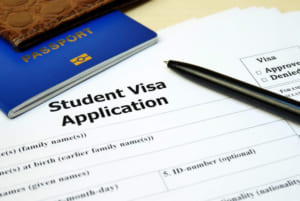Editor’s Note: this article was written after the lawsuit discussed herein but not published before the DHS indicated to the Federal Court judge on July 14th that it would rescind the policy.
 In a recent American Immigration Lawyers Association (“AILA”) webinar, the esteemed Ira Kurzban, unquestionably regarded as the godfather of immigration litigation, commented that every single day of Trump’s administration, he has made some change to law or regulation by issuing Executive Orders or directives or by other means. This is most evident and publicized in his attack on legal immigration, circumventing the laws and regulations passed by Congress that provide for an organized necessary immigration system. That the GOP has allowed him to do so without check is telling of how far to the right the Republican party has swung. But Trump may have finally overstepped his authority.
In a recent American Immigration Lawyers Association (“AILA”) webinar, the esteemed Ira Kurzban, unquestionably regarded as the godfather of immigration litigation, commented that every single day of Trump’s administration, he has made some change to law or regulation by issuing Executive Orders or directives or by other means. This is most evident and publicized in his attack on legal immigration, circumventing the laws and regulations passed by Congress that provide for an organized necessary immigration system. That the GOP has allowed him to do so without check is telling of how far to the right the Republican party has swung. But Trump may have finally overstepped his authority.
Last week the United States Department of Homeland Security (“DHS”) announced a new policy prohibiting foreign students from studying in the United States if a college or university shifted to full-time online classes because of the COVID-19 pandemic. Foreign students in the U.S. on F-1 and M-1 visas enrolled in any institution that moved all its classes online would be required to leave the United States. Immediately Harvard University and the Massachusetts Institute of Technology sued in federal court to try to block this policy. On July 13th attorneys general in 17 states and the District of Columbia filed a lawsuit against the Trump administration over this same policy, including a request for an injunction to stop the policy from becoming effective while the case is being considered by the court.
Forcing foreign students to leave the U.S. could have a significant economic impact on the United States. According to the Institute of International Education, the total foreign student population reached 1.1 million in the 2018- 2019 academic year and comprised roughly 5.5 percent of the total higher education community. The U.S. Department of Commerce noted that foreign students contributed nearly $45 billion to the 2018 U.S. economy as well as offering cultural diversity to campus life and enriching academics in many ways.
The lawsuit is based on several key factors. The directive was arbitrary and capricious because it failed to offer a reason for its reversal of prior policy, the rule imposes large financial and administrative burdens on colleges and universities, and the directive would interfere with reopening guidelines that state governments have already issued.
Initially filed by the state of Massachusetts, 16 other states joined the lawsuit and includes declarations from more than 40 schools impacted by the policy, including the University of Massachusetts, Boston University, Yale, the University of Connecticut, and Tufts University.
Lawsuits filed against Trump’s policies and executive orders are ubiquitous. It is possible that almost every single order or policy change that he has made has resulted in a lawsuit. But in the field of legal immigration, an organized challenge by a significant number of states is notable. With fall semesters scheduled to begin in as little as 5 to 7 weeks, foreign students in the U.S. and those institutions that rely on such students urgently need an injunction to ensure stability to all parties during the resolution of this lawsuit.
If you have questions about the policy or the lawsuit, or what you as a foreign student can do to protect your status, contact us at info@enterlinepartners.com and speak with one of our U.S. immigration lawyers in Ho Chi Minh City, Manila and Taipei.
ENTERLINE & PARTNERS CONSULTING
Ho Chi Minh City, Vietnam Office
Suite 601, 6th Floor
Saigon Tower
29 Le Duan Street
Ben Nghe Ward, District 1
Ho Chi Minh City, Vietnam
Tel: +84 933 301 488
Email: info@enterlinepartners.com
Facebook: Enterline & Partners – Dịch vụ Thị thực và Định cư Hoa Kỳ
Website: http://enterlinepartners.com
Manila, Philippines Office
Unit 2507 Cityland 10 Tower 1
156 H.V. Dela Costa Street
Makati City, Philippines 1209
Tel: +632 5310 1491
Email: info@enterlinepartners.com
Facebook: Enterline and Partners Philippines
Website: https://enterlinepartners.com/language/en/welcome/




